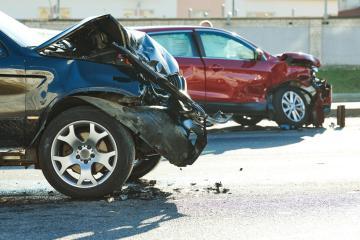Accidents happen all the time, and these are things that you can prevent by being extra careful and cautious. But, when the other party isn’t, you'll likely suffer from one.
An accident's physical, emotional, mental, and financial effects are life-altering. That is, if the result of the accident didn't go as far as death.
In 2019, 12.15 million vehicles were involved in car crashes in the United States.
Most traffic-related accidents result from speeding and alcohol impairment, with younger drivers getting involved in them. Other causes of road accidents are preventable, like distractions and non-following of basic traffic rules, like stopping at a red light. A glance at a cellphone could be detrimental as well, as others feel the urgency to answer a call or a message to be more important than the life of the people on the road.
Such situations exacerbate when motorists and passengers don't follow basic rules of wearing protected gear, like seatbelts and helmets. Because of this, most non-fatal crashers result in TBI or traumatic brain injury, which results in paralysis, internal injuries, lacerations, and broken bones.
If any of your loved ones get injured in an accident, you may check out the website 1800injured.care or any other similar online portal. They can assist you in filing claims, and they have the best injury lawyers to win your case.
Meanwhile, to better assist your loved ones in these trying times, here's how to help them when they get injured in an accident:

1. Take Them To Their Medical Appointments
The first stages of recovery from an accident require rehabilitation. Often, patients won’t be able to drive or would be hesitant to face the wheel again after the traumatic experience. Some patients may suffer from PTSD or post-traumatic stress disorder, and might even need psychotherapy to overcome the trauma before they can resume driving again.
It’d be a massive help if you could take them to their medical appointments, follow-up checkups, and rehabilitation sessions to support them. This would uplift their spirit, knowing that somebody would be willing to see that they're progressing.
2. Encourage Them To Get Treatments
Some injuries may not be visible and won't manifest immediately; others take a while to show up as painful illnesses. Some accident victims may want to shrug things off for thinking they’d just be a burden to others. This could be dangerous because the injuries could become worse.
As a concerned family member, don’t accept your loved one's dismissal and encourage them to get treatment even if nothing in their body is visibly injured. If needed, accompany them to the hospital, so you're sure that they’ll not balk.
3. Bring Them Food
Nothing could be more comforting than a home-cooked meal. A loved one recuperating from injuries might not be able to prepare food for their sustenance; they might be eating TV dinners or fast food, which are not nutritious. You can bring them a pot of chicken soup or anything comforting so that they’ll feel cared for.
4. Take Care Of Their Pets
It might be difficult for them to do their routine with their pets if their injuries require them to be in bed and rest. They won't be able to feed or bathe their pets, and any assistance in this matter will surely be appreciated.
5. Get Them Groceries
A simple task of asking what they need from the grocery and getting it for them would help anyone after an injury. If they live alone, shopping for their needs will lift a considerable burden off their shoulders. If they have young kids at home who also need caring, doing their groceries will greatly help in managing the kids who need to be attended as well.
6. Be A Listening Ear
Many prioritize attending to physical injuries after an accident, which is just right. But, what many don't realize is that attending to mental and emotional health could be as crucial in the healing process of a person involved in an accident. The trauma one suffers due to a distressing situation needs to be handled.
You don't necessarily have to hire a medical professional to help your loved one. You can be a listening ear and be there for them. Many people consider talking about what happened in their lives to be therapeutic. And, having someone to be there for you and hold your hand can make things easier and more bearable.
Conclusion
After an accident, many of those involved may be incapacitated and disoriented that they wouldn't know their next steps. For support, you may help them by providing assistance in filing claims and in getting the best personal injury lawyer so they could be compensated for the terrible fate they received.

Isreal olabanji a dental assistant and public health professionals and has years of experience in assisting the dentist with all sorts of dental issues.
We regularly post timely and trustworthy medical information and news on Fitness, Dental care, Recipes, Child health, obstetrics, and more.
The content is intended to augment, not replace, information provided by your clinician. It is not intended nor implied to be a substitute for professional medical advice. Reading this information does not create or replace a doctor-patient relationship or consultation. If required, please contact your doctor or other health care provider to assist you to interpret any of this information, or in applying the information to your individual needs.

